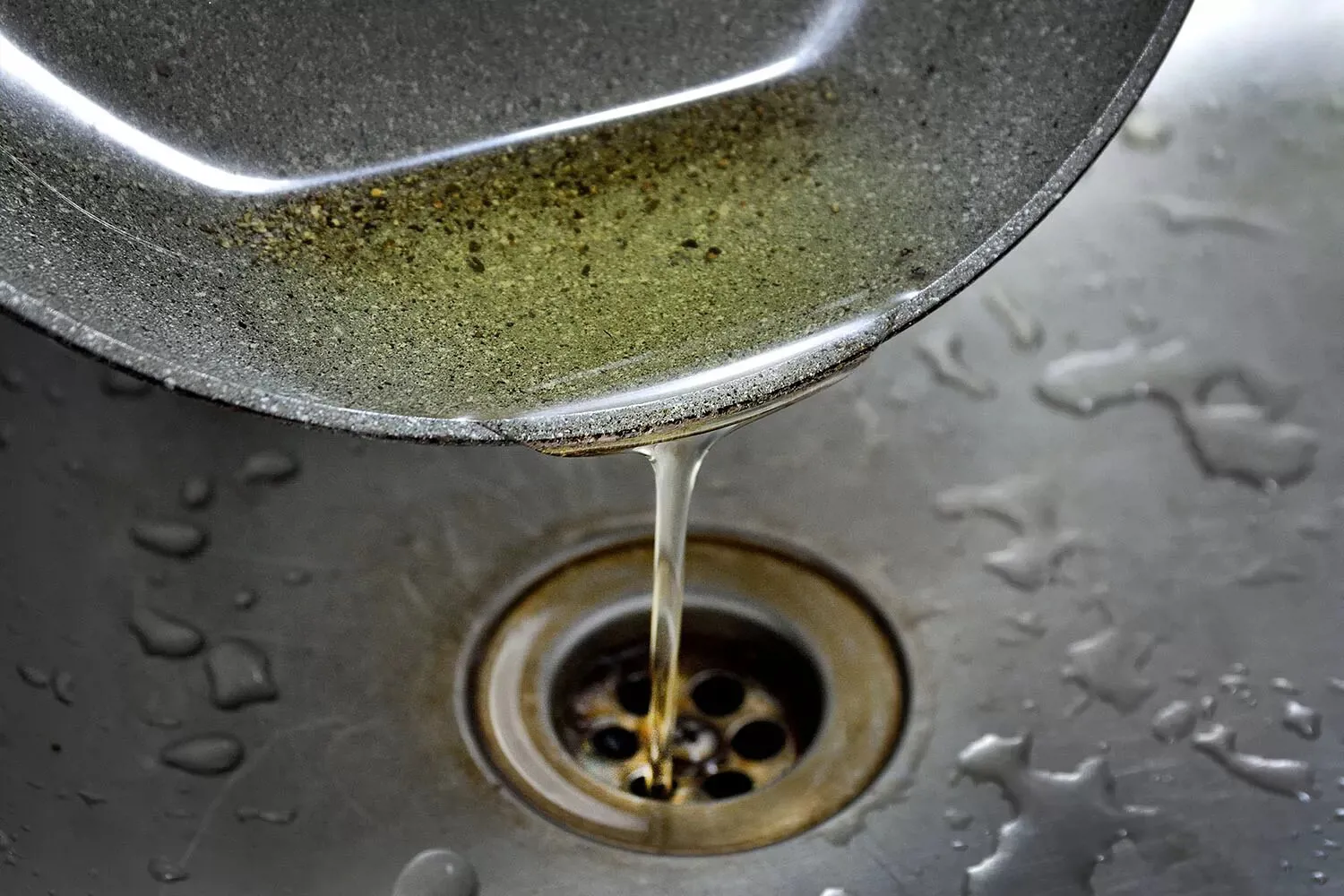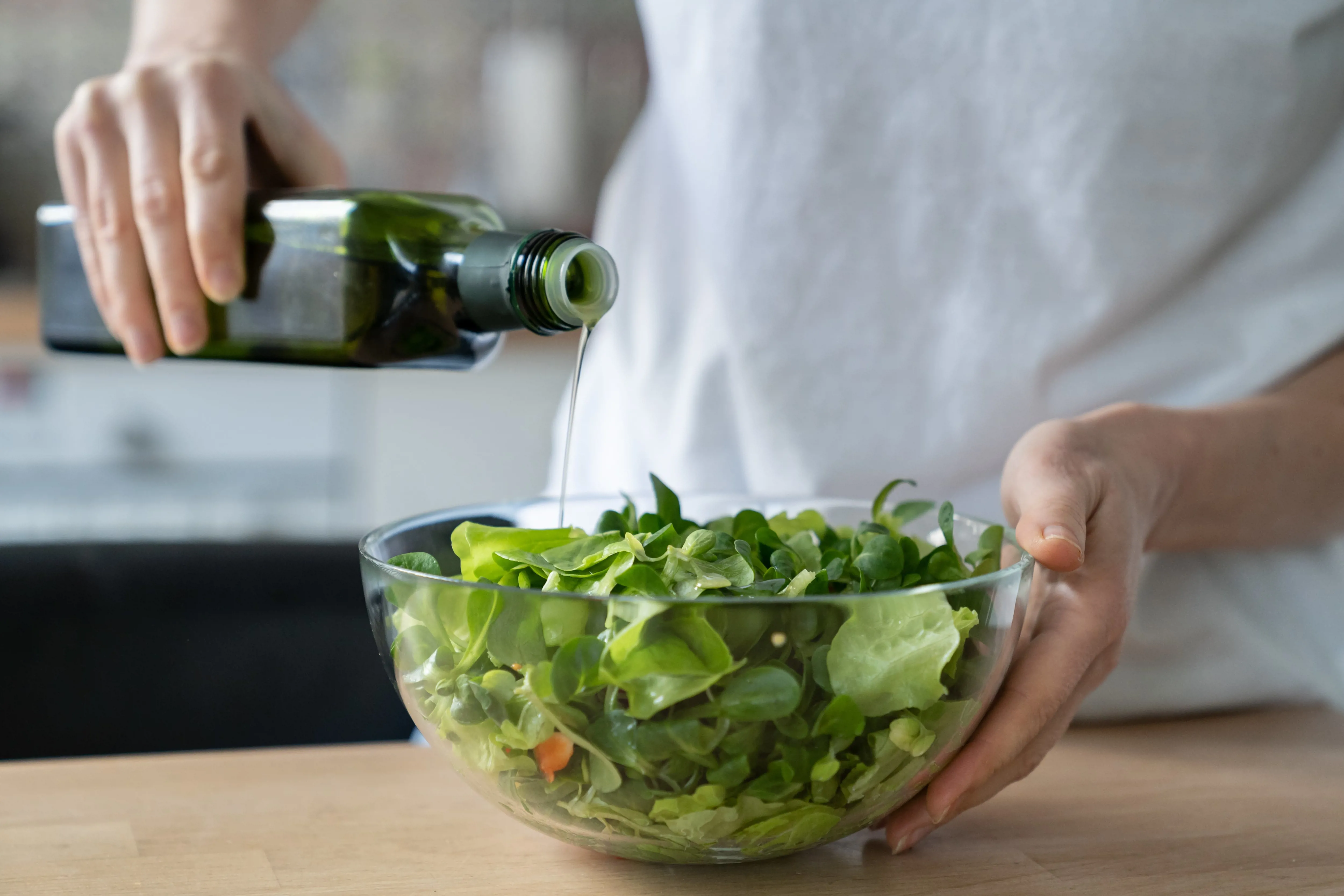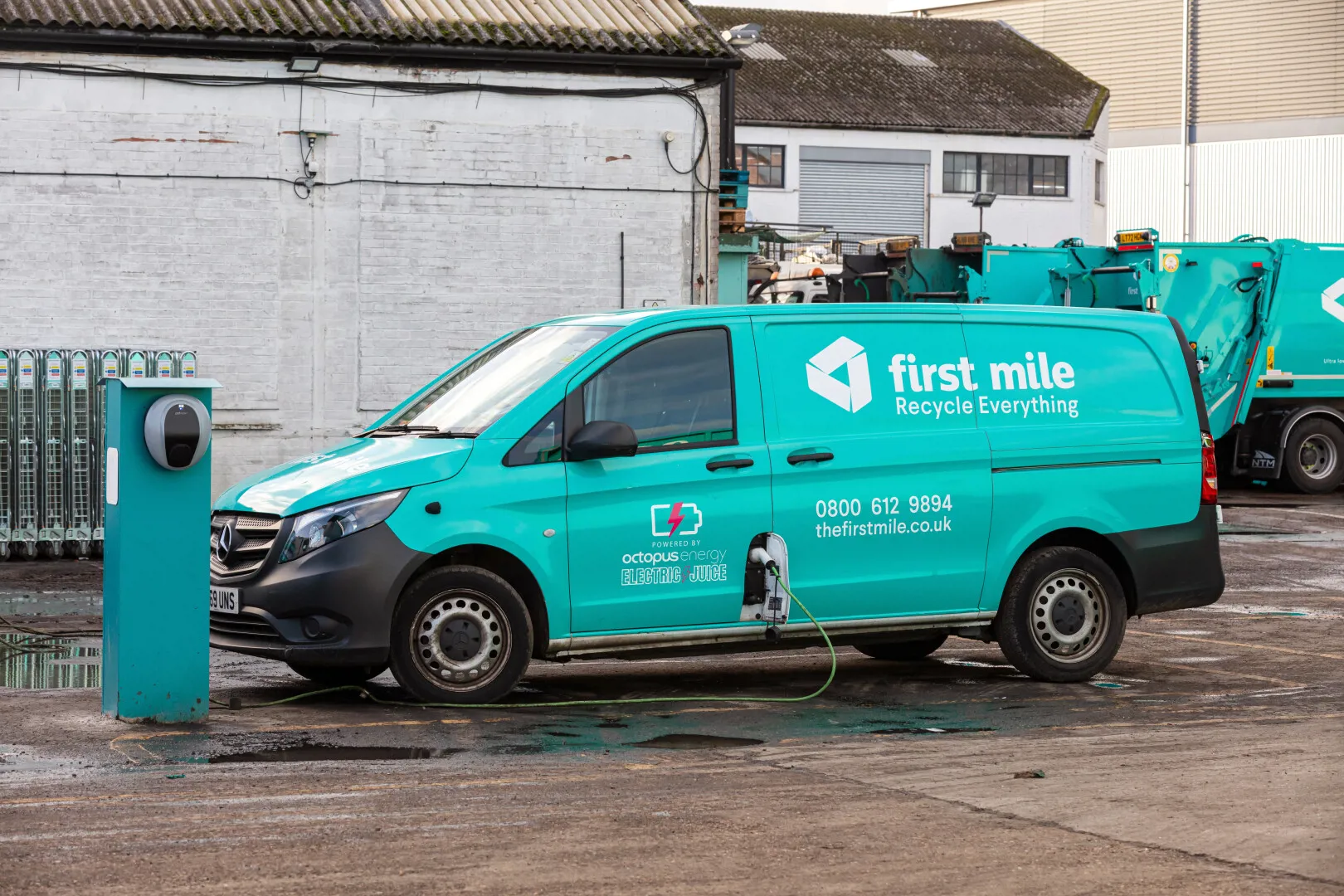If your business creates used cooking oil - even a small amount - it's essential that you understand why and how restaurants dispose of cooking oil correctly.
In this guide, we'll explore everything there is to know about dealing with waste oil - including the financial and environmental implications of improper cooking oil disposal.
What is Cooking Oil?

If asked to picture cooking oil, most people will think of the oil that's used to give a portion of fish and chips its glorious golden colour. In actual fact, the term 'cooking oil' can refer to a wide variety of fats used in cooking and food preparation.
Some examples include:
- Liquid oils: Including olive oil, sunflower oil, palm oil, corn (maize) oil, sesame oil, and coconut oil. These oils are often used for frying, sautéing, and baking.
- Grease: This refers to the fatty substances that are derived primarily from animal fats. It's the residue you often find after cooking meats, especially pork, lamb and beef.
- Butter and Margarine: Whether melted to use for cooking or used as a spread.
- Lard: Usually created using pork fat and used in baking and frying.
- Shortening: A solid fat used to make pastries flaky and crumbly. It can be made from animal fat, vegetable oil, or a combination of the two.
- Ghee: Clarified butter that has had the milk solids removed, popular in South Asian and Middle Eastern cuisines.
- Residue from grease traps: For any grease or fatty leftovers trapped after making their way into the dishwasher or washing up sink.
Why You Should Never Pour Cooking Oil Down the Sink

It's a common misconception that it's okay to dispose of waste cooking oil by pouring it down the sink. Oil waste should never be handled in this way - no matter how much boiling water follows it.
The reasons for this are four-fold:
Legal Consequences
Both the Environmental Protection Act 1990 (EPA 1990) and the Food Safety Act 1990 outline a business's duty to handle waste correctly, establishing measures to prevent pollution and ensure appropriate hygiene levels.
As such, failure to handle leftover cooking oil correctly can lead to prosecution - with the penalties imposed ranging from significant fines, business closure orders, or even imprisonment for the most severe cases.
The Environment
When cooking oil is poured down the drain, it doesn't just disappear; it has a lasting impact on the environment. As it cools and solidifies, oil and grease can create blockages in local sewer systems, leading to overflows and contaminating local waterways.
This not only harms aquatic life but also degrades water quality, making water treatment more challenging and costly.
Poor Hygiene
Improper disposal of cooking oil not only poses environmental risks but also raises significant hygiene concerns. When old cooking oil is discarded incorrectly, it will often lead to unpleasant smells that can easily work their way through your premises, creating a seriously unappealing environment for customers and staff.
As if that isn't bad enough, stagnant oil and residue can attract pests like rats and insects, posing further risks to health and sanitation.
Costs to Your Business
Mishandling cooking oil isn't just a legal, environmental or hygienic oversight - it's also likely to be a financial misstep.
The immediate aftermath of improper oil disposal can result in costly plumbing issues within your premises, as congealed oil results in stubborn blockages. Fixing these almost always requires professional intervention, quickly racking up expenses.
How Do Restaurants Dispose of Cooking Oil?

If all this talk of environmentally sound cooking oil disposal has got you thinking about what you can do with used cooking oil at home - good news - we also know a thing or two about that.
Reuse cooking oil: Cooking oil doesn't really break down and become unusable - it just gets dirty. This means lightly used cooking oil can usually be used a couple of times. To prolong its life, you can strain it through a coffee filter when it's cold and keep it in a secure container in the cupboard until you need to use it again.
Recycle: Some household recycling centres accept old cooking oil - and some local authorities accept sealed containers of cooking oil in domestic food recycling bins. Check with your local council to see if they have used cooking oil recycling facilities.
Small amounts might be suitable for general waste: If you have a small quantity of oil or grease, you can check if your local council will accept it in general waste. If they do, try to soak it up with food leftovers, cat litter, sawdust, or sand to help prevent spillages before throwing it away.
What Happens to Cooking Oil After Disposal?

When your cooking oil is collected, it starts an impressive recycling journey at a specialist processing facility. Through a series of filtration and purification processes, contaminants and water are removed, and then, a complex chemical process separates biodiesel from other by-products.
After another round of purification, the recycled cooking oil has officially become biodiesel - and is then ready to be used as a more eco-friendly fuel for vehicles, as heating oil, or as a cleaner-burning alternative to traditional diesel in industrial machinery and equipment.
What Will Used Cooking Oil Recycling Look Like for You?
So, what might cooking oil recycling look like for your business?
Speaking to a business waste partner about cooking oil disposal is a good first step. With their industry knowledge, they'll be able to talk to you about the containers available, collection schedules and anticipate roughly how much used cooking oil you'll generate.
After talking to a potential waste partner, it's good to spend a few minutes thinking about your kitchen and food prep areas. Whether in early morning prep sessions or the heat service, it's easy to forget how oils and grease should be handled. As such, easily accessible oil disposal containers and signage that explains what should (and shouldn't) go in used oil storage is a good next step.
It's also a good idea to explain to staff teams why the business should pay attention to proper cooking oil disposal. Ultimately, sound environmental practices, squeaky-clean hygiene, and avoiding unnecessary costs or fines have an impact on them too - so talking it through will often help to keep everyone's goals aligned.
When it's time for your first collection, your chosen business waste partner should provide you with a "waste transfer note" - often referred to as a "WTN". This note provides a record of the waste, its origin, and where it's being taken.
In the event of an inspection or audit from your local authority or the Environment Agency, your WTNs will prove that you're handling waste cooking oil in the correct way. As such, the Environmental Protection Act says you'll need to keep your WTNs on file for at least two years.
Of course, a good waste transfer partner isn't just there to collect your oil waste and help with paperwork - they'll be more than happy to support you with any part of waste management in your business. This means answers to any questions about how to manage used cooking oil or your other waste streams are just a phone call away.
First Mile's Cooking Oil Recycling
At First Mile, we'll collect your used Cooking Oil and take it to a specialist recycling facility, where it is turned into biodiesel used to run local transport such as cars or buses.
Simply order your Cooking Oil Container or Sticker, and we'll deliver it the next day and collect it on your chosen collection date.
Used Cooking Oil FAQs
Take a look at some of the common questions business owners and managers have about waste cooking oil.
Do restaurants reuse cooking oil?
Yes, many restaurants reuse cooking oil. Cooking oil can be filtered and cleaned for reuse, especially when used for frying. It's vital, however, to ensure the oil maintains its quality and doesn't become overly degraded or contaminated. Regular checks on oil quality will help you decide when it's time to recycle or dispose of it.
Can restaurants recycle cooking oil?
Yes, restaurants can recycle cooking oil easily. Specialised waste partners can collect used cooking oil, before it is sent to processing facilities to convert it into biofuel. It's essential for restaurants to store used oil separately and work with licensed waste carriers to ensure eco-friendly and compliant recycling.
Is there restaurant cooking oil recycling near me?
Almost certainly, yes. At First Mile, we offer cooking oil recycling services around the UK. In the unlikely event that we don't cover your area, we'd be more than happy to give you some pointers on how to find a recycling partner that shares our environmentally friendly practices and zero-to-landfill promise.
At a Glance: Recycling Cooking Oil in Restaurants and Commercial Kitchens
As you can see, there's more to used cooking oil handling than you might think. There's a broad range of fat-based products used in kitchens - and the old idea of pouring them down the sink with boiling water is a definite no-no.
Mishandling leftover oil doesn't just impact waterways and sewer infrastructure; it can also encourage unpleasant smells and pests into your premises. If that weren't bad enough, local authorities and the Environment Agency often imposed significant penalties on non-compliant businesses, including fines and closure orders.
The good news is cooking oil isn't difficult to deal with. The right waste partner can help with everything from training, signage and containers though to working out a convenient collection schedule.
If you have any questions, the team here at First Mile is always happy to help. You're more than welcome to get in touch if you want to learn more about how restaurants dispose of cooking oil.


